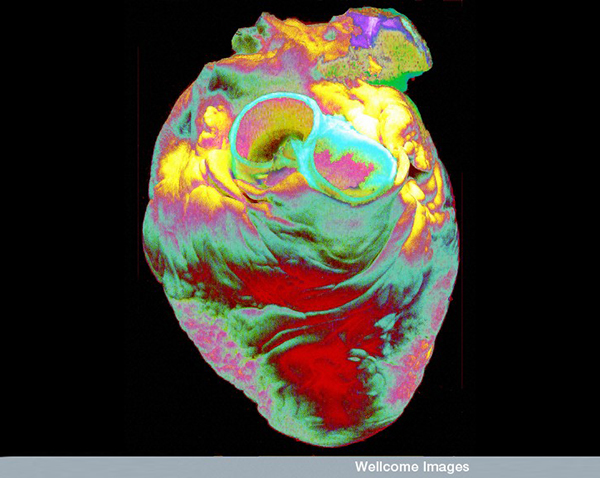By now, most of us know that being overweight and a poor diet, often high in saturated fats, will send us down the path toward cardiovascular disease. Yet, in recent years, rising evidence has pointed to additional factors that may unduly influence the development of atherosclerosis. Case in point is the results from a new study by investigators at the University of Connecticut (UConn), which suggests that the fatty molecules clogging your arteries might come not only from what you eat but from the bacteria in your mouth. Findings from the new study were published recently in The Journal of Lipid Research in an article entitled “Deposition and Hydrolysis of Serine Dipeptide Lipids of Bacteroidetes Bacteria in Human Arteries: Relationship to Atherosclerosis.”
For decades, doctors and researchers assumed that atherosclerotic lipids came from eating fatty, cholesterol-rich food. But the research hasn't borne this out—some people who consume large amounts of the foods we thought were the sources of the fat, such as eggs, butter, fatty fish, and meat, don't necessarily develop heart disease.
The UConn researchers believe they may have solved part of the puzzle. Using careful chemical analysis of atheromas—the warty growth on blood vessels created by the plaques—collected from patients by a colleague at Hartford Hospital, they found lipids with a chemical signature unlike those from animals at all. Instead, these strange lipids come from a specific family of bacteria.
“I always call them greasy bugs because they make so much lipid,” explained senior study investigator Frank Nichols, D.D.S., Ph.D., a UConn Health periodontist who studies the link between gum disease and atherosclerosis. “They are constantly shedding tiny blebs of lipids. Looks like bunches of grapes.”
The research team analyzed the lipid samples, noting that the chemical differences between bacterial and human lipids result in subtle weight differences between the molecules.
“We used these weight differences and modern mass spectrometers to selectively measure the quantity of the bacterial lipids in human samples to link the lipids to atherosclerosis,” remarked co-senior study investigator Xudong Yao, Ph.D., associate professor of chemistry at UConn. “Establishment of such a link is a first step to mark the lipids as indicators for early disease diagnosis.”
The apparent chemical differences between Bacteroidetes lipids and the human body's native lipids may be the reason they cause disease, Dr. Nichols suggested. The immune cells that initially stick to the blood vessel walls and collect the lipids recognize them as foreign. These immune cells react to the lipids and set off alarm bells.
In the current study, the researchers showed that despite being non-native lipids, the Bacteroidetes lipids could be broken down by an enzyme in the body that processes lipids into the starting material to make inflammation-enhancing molecules. Thus, the Bacteroidetes lipids have a one-two punch on the blood vessels: The immune system sees them as a signal of bacterial invasion, and then enzymes break them down and supercharge the inflammation.
Yet despite the havoc they wreak, it's not the Bacteroidetes bacteria themselves invading. Usually, these bacteria stay happily in the mouth and gastrointestinal tract. If conditions are right, they can cause gum disease in the mouth, but not infect the blood vessels. But the lipids they produce pass easily through cell walls and into the bloodstream.
The next step in the research is to analyze thin slices of atheroma to localize exactly where the bacterial lipids are accumulating. If they can show the Bacteroidetes-specific lipids are accumulating within the atheroma, but not in the normal artery wall, that would be convincing evidence that these unusual lipids are associated specifically with atheroma formation and therefore contribute to heart disease.







